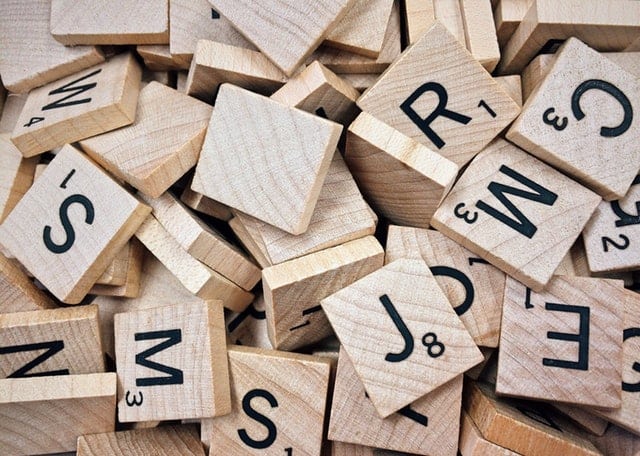
Are you doing any reorganizing or decluttering right now?
Have you heard words that begin with “re” or “de” used in English?
These are very common prefixes that you will see used often, and they have distinct meanings.
In this ESL grammar lesson we’re going to we’re going to look at these prefixes, how they work, and what they can mean in your conversations so you know how to use them properly.
Get Your Transcripts Today!

Make sure you understand every word you hear on All Ears English.
Bring your English to the advanced level with new vocabulary and natural expressions.
Subscribe and get the transcripts delivered by email.
Learn to speak naturally with the American accent.
Click here to subscribe and save 50%
Understanding A Little Background
We’ve talked in the past about how an episode about the prefixes “de” and “re” would be helpful.
There are so many words that use these prefixes, such as reorganizing and decluttering.
You want to start by understanding what a prefix is because that’s an important part of this.
A prefix is something added before a word.
There are many of them, but for today we’re going to focus on those that start with “re” and “de.”
We have done similar episodes in the past that can serve as great points of reference.
- How To Avoid Confusing English Traps
- The Smartest and Fastest Way To Understand 80% of All Vocabulary Words In English
These are both episodes that can give you some background.
You will find that prefixes are a very common part of English conversation, and so you want to understand how they work.
Give yourself this background and then you can really start to understand how this works.
Looking At The Meaning
Let’s start by looking at what each of these prefixes are.
Though there are plenty of them out there, looking at these two to begin with can be a great approach.
What is re?
Re is like repeat, or to do again.
It may mean that you are coming back to something or going to do it again.
So for example, if you say reorganize it means to organize something again.
This is used a lot particularly when you are saying that you are revisiting something or wanting to do it again.
What is de?
This serves as a good contrast or almost an opposite to “re” in a sentence.
Basically it means to take away or to do away with something.
The dictionary says it shows removal, separation, etc. or also the opposite!
So for example, declutter means to take the clutter away!
These two can work against each other, but not all prefixes are like that.
Common Words Using These Prefixes
You will start to see just how common these prefixes are when you see the many words that use them.
This shows you what a common part of English conversation this is, and so you want to understand them well.
So let’s start by helping you to understand what each of these prefixes means.
RE-
This is a prefix that you will see used in many words and it usually means to do something again.
You can see how this works in the many words that begin with “re”, and there are a lot.
- Rebuild: This means to build again or to do over again. Something may not have been there but it’s back, or it needs to be done all over again. You might say “Let’s rebuild our friendship.”
- Remarry: You were married before but it didn’t work out and so you’re saying that you might marry again. You could say something like “I think he might remarry if he met the right person.”
- Replay: You are playing something again. You might hear this in sports a lot because it’s showing a clip of something that already happened. You might hear “Let’s look at the instant replay of that home run.”
- Redo: You need to do something again. You have to do it all over again and there’s usually a reason for it. You could say something like “You need to redo that assignment.”
These are just a few of the words that use “re” and you get a feel for what they mean.
DE-
This is a prefix that you see that is like the opposite of “re” in some ways.
While “re” means to do again, words with “de” means to undo as you will see in some of the common words.
- Defrost: You froze something and now you need to get it out of that frozen state. You may pull something out of the freezer and then put it out to get it to room temperature. You will use this one a lot such as to say “I need to defrost the chicken.”
- Deactivate: You had a membership or some sort of status. You want to get out of that contract or membership and therefore you need to get out of active status. You would say “I decided to deactivate my gym membership at the end of the year.”
- Decompress: You will hear this one a lot because you are probably stressed a lot like so many people are. When you feel stressed, you would say “I want to just decompress and watch a movie after this crazy day.”
- Decaffeinated: This is coffee or tea without the caffeine. The caffeine is actually taken out or removed from the coffee or tea. You would say “I only drink decaffeinated coffee after 3pm.”
Understanding how these prefixes work and what they mean can really be quite helpful and ensure that you use them correctly.
Using These Properly
The key with prefixes of any kind is to use them properly, and that’s
What’s interesting is that you can’t just place a prefix instead of anything.
For example, you don’t demarry- you divorce!
You also don’t dedo something-you redo it, or you undo!
So you have to understand how they work and which ones match–and this is all about trial and error.
You may not get it right the first time, but you will start to get a feel for how it works and what matches with what.
Some matches with these prefixes can help you to get a feel for how they work best.
- Deactivate: This was mentioned above, but you can also use reactive as a perfect counter point. “I want to deactivate my account” means to get rid of it, or to stop it. “I want to reactivate my account” means you want to start it up again if it was currently stopped.
- Decaffeinated: This was also mentioned above, and the opposite of this that works is recaffeinate. You might not find recaffeinate in the dictionary, as it’s more conversational in nature. It essentially means to caffeinate yourself again or to consume some caffeine again. If you had decaf coffee or if you got tired all of a sudden, then you might say that you need to recaffeinate yourself.
These are good examples of matches and times when the prefixes can be used as the perfect contrasts.
You want to be sure that you know how to use each prefix correctly, and you may make mistakes but you will learn.
Takeaway
As we have talked about before, prefixes are SO helpful with English.
But it’s also important to understand that you can’t just mix and match all the time with prefixes.
It’s a great way to guess what words mean, but it may not be the best way to create words when practicing- you can try but just don’t be afraid to be wrong.
Native speakers sometimes make mistakes with this as well.
Try it and you will know what sounds right or wrong–this is a great way to enjoy conversation and to make connections!
Also, if you are taking IELTS this year, be sure to get familiar with these prefixes for the Speaking test and the Writing test.
If you have any questions, please leave them below in the comments section.
We’ll get back to you as soon as we can.








